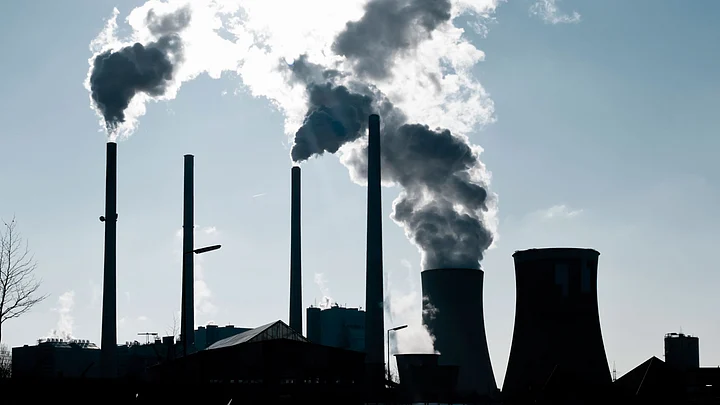According to data released by the Central Electricity Authority (CEA) of India on Monday, 11 October, the status of 116 out of 135 coal power plants in the country was either 'critical' or 'super critical', with these 116 plans having less than a week's stock left.
Out of the 116 plants, 15 power plants did not have even a day's supply of coal, and 27 plants were carrying just a day's worth of stock.
Meanwhile, 20 power plants indicated that they were carrying two days of coal stock, 21 had three days' reserves and another 20 had four days' worth of coal reserves.
Amid widespread reports of an ongoing coal crisis, its resultant power outages and states' appeals to the Union government in the matter, the Union Minister of Coal Pralhad Joshi on Tuesday maintained that Coal India Ltd had “22 days' stock of coal” with it.
The power ministry went on to attribute the shortages in coal to incessant rains and unprecedented demand for electricity.
Joshi stated, "Due to rains, there was coal shortage, causing an increase in international prices – from Rs 60 per ton to Rs 190 per ton. Subsequently, imported coal power plants are either shut for 15-20 days or producing very less."
Meanwhile, states such as Uttar Pradesh, Rajasthan and Kerala were struck by power outages over the weekend, Bloomberg Quint reported. A Scroll report noted that Punjab and Tamil Nadu also imposed power cuts in view of the crisis.
Several states including Maharashtra, Jharkhand, Delhi, Andhra Pradesh, and Kerala have already apprised the central administration of fast-depleting coal stocks in their regions.
Use Unallocated Power to Supply Consumers: Power Ministry to States
Earlier on Tuesday, the power ministry urged states to utilise unallocated power of the central generating stations (CGS) to meet the requirements of their own consumers.
A statement from the ministry said that even as the demand from coal-based power plants has increased, it had been observed that some states are not supplying power to their consumers and imposing load-shedding in some areas.
"On the other hand, they are selling power in the power exchange at high price," a memorandum from the ministry stated.
(With inputs from Bloomberg Quint and Scroll.)
(At The Quint, we question everything. Play an active role in shaping our journalism by becoming a member today.)
